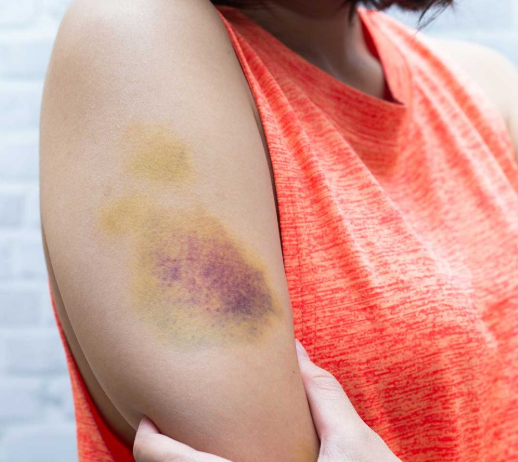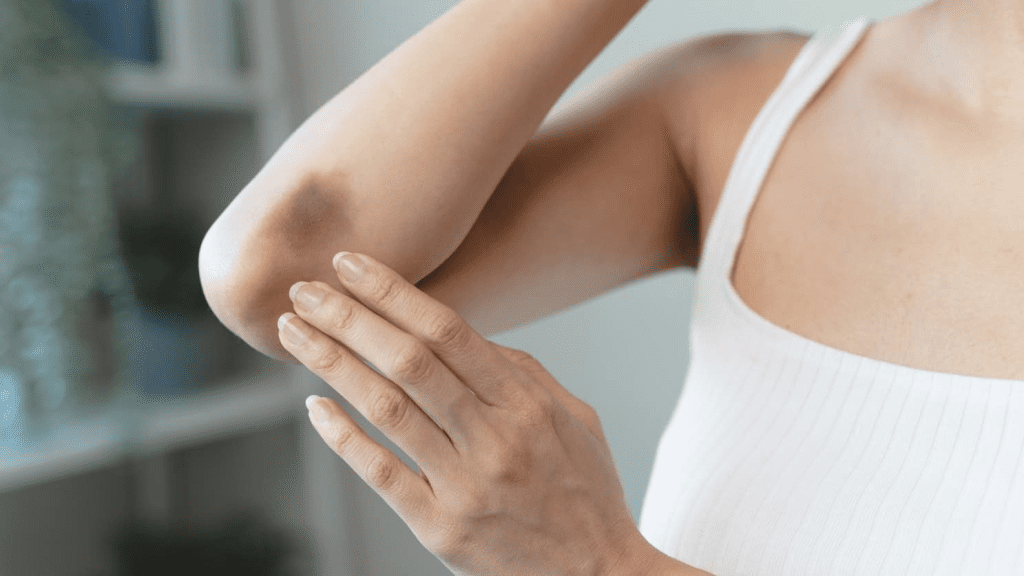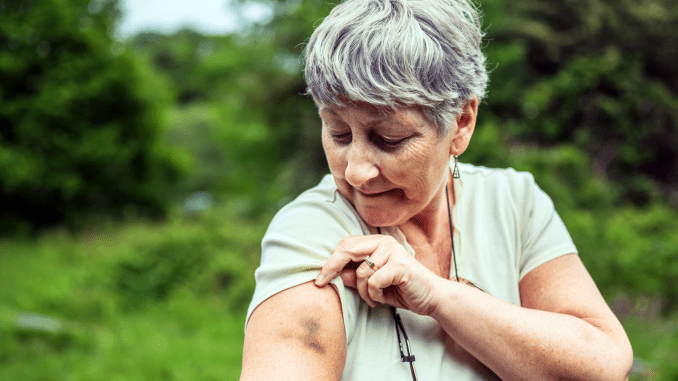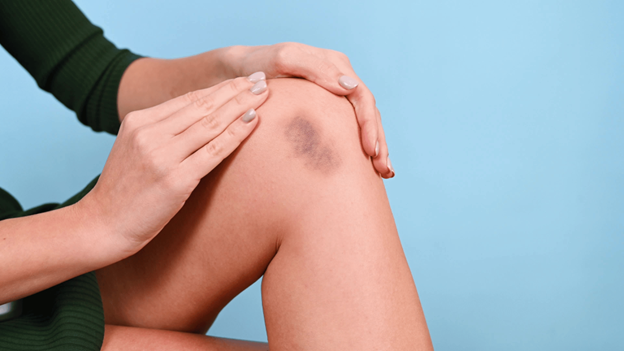Bruising can be a common occurrence for many people, but have you ever wondered why some of us bruise more easily than others? One bump, a slight knock, and suddenly, a bruise appears. For some, these marks seem to show up out of nowhere, even without any noticeable impact. While bruising might be a normal part of life, if it happens more frequently than you’d expect, it may point to an underlying cause. In this article, we’ll explore 10 reasons why most people bruise easily and what you can do about it.
Understanding Bruises: What Are They?

Before diving into the causes, it’s essential to understand what bruising is. A bruise, also known as a contusion, occurs when small blood vessels underneath the skin break due to trauma or impact. This leads to blood leaking out and pooling beneath the skin, causing the discoloration we associate with bruises. Bruises often change colors over time, starting as red or purple and fading to yellow or green as they heal.
Now, let’s explore the reasons behind why some people are more prone to bruising than others.
1. Thin or Sensitive Skin
As we age, our skin naturally becomes thinner and loses its elasticity. This makes it more vulnerable to injury, and even a slight bump can cause bruising. Additionally, older adults may have less fat padding between the skin and the blood vessels, making bruises more likely to form with minimal pressure. People with sensitive skin, regardless of age, can also bruise more easily due to a lower tolerance to minor impacts.
2. Medications That Thin the Blood
Certain medications, especially blood thinners like aspirin, warfarin, or clopidogrel, can make people more prone to bruising. These medications are designed to prevent blood clots, but they also make it harder for blood to clot when you get injured. As a result, even minor bumps can cause bleeding under the skin, leading to bruising. Always consult with your doctor if you’re concerned about how your medication might affect your bruising.
3. Vitamin Deficiencies
Your body relies on a range of vitamins to maintain healthy blood vessels and skin. A deficiency in essential vitamins, such as Vitamin C, Vitamin K, and Vitamin B12, can make you more susceptible to bruising. For example, Vitamin C is crucial for collagen production, which helps keep blood vessels strong. Without it, blood vessels can become fragile and prone to breaking easily. A lack of Vitamin K can also affect your ability to clot blood, resulting in bruising. If you notice bruising alongside other symptoms like fatigue or pale skin, it may be worth checking in with your doctor.
4. Hormonal Changes
Hormonal fluctuations can also play a role in easy bruising. Conditions like pregnancy, menopause, or even hormone replacement therapy (HRT) can cause changes in your skin and blood vessels. For instance, during pregnancy, the body produces higher levels of estrogen, which can cause blood vessels to dilate, making them more prone to damage. Similarly, menopause can lead to thinning skin and changes in circulation, both of which may contribute to more frequent bruising.
5. Medical Conditions That Affect Blood Clotting
Certain medical conditions, such as hemophilia, liver disease, or von Willebrand disease, can interfere with your body’s ability to clot blood properly. When clotting is impaired, even the smallest bump can cause bruising. People with these conditions often bruise very easily, and the bruises may be larger or take longer to heal. If you have a family history of clotting disorders or notice unexplained bruising, it’s essential to speak with a healthcare professional.
6. Aging and Decreased Collagen Production

As mentioned earlier, aging can lead to thinning skin, but it also decreases collagen production. Collagen is a protein that helps support skin, blood vessels, and connective tissue. As collagen levels decline, the skin becomes more fragile, and blood vessels become more susceptible to injury. This is why older adults often notice an increase in bruising with even minor impacts. While collagen supplements may help improve skin elasticity, they’re not a cure-all.
7. Excessive Sun Exposure
Chronic sun exposure can weaken the skin and blood vessels over time, making you more prone to bruising. UV rays can break down collagen and elastin, essential components of healthy skin. This leads to skin that’s more fragile and more susceptible to damage from minor bumps or knocks. If you’re someone who spends a lot of time in the sun, wearing sunscreen and protective clothing can help reduce the risk of bruising.
8. Smoking and Poor Circulation
Smoking can interfere with blood circulation and decrease oxygen levels in the blood. This poor circulation can weaken blood vessels, making them more likely to burst under the slightest pressure. Additionally, smoking can also impair the body’s healing process, making bruises take longer to fade. If you’re a smoker, quitting can significantly improve both your skin health and circulation, reducing the likelihood of easy bruising.

9. Alcohol Consumption
Excessive alcohol consumption can also contribute to easy bruising. Alcohol affects your liver, impairing its ability to produce clotting factors. This can make it more difficult for blood to clot when you get injured, leading to bruises that appear with minimal trauma. Additionally, alcohol can affect blood pressure and circulation, further contributing to fragile blood vessels. Moderating alcohol intake can help reduce your risk of bruising easily.
10. Genetics and Family History
Sometimes, easy bruising runs in families. Certain genetic conditions or hereditary factors may make some individuals more prone to bruising. If your parents or grandparents have experienced frequent bruising, it’s possible that you may be genetically predisposed to it as well. While you can’t change your genetic makeup, being aware of your family history can help you better understand your bruising tendencies.
Conclusion: Taking Control of Your Bruising

Bruising easily can sometimes be a natural part of life, but if it becomes a frequent concern, it’s important to pay attention to the underlying causes. Whether it’s due to aging, medication, a vitamin deficiency, or a more serious medical condition, understanding why you bruise easily is the first step toward taking control of your health. If you notice an increase in bruising or have concerns about your bruising patterns, don’t hesitate to consult with your healthcare provider. By making simple lifestyle adjustments, like protecting your skin from the sun, eating a balanced diet, and avoiding smoking, you can help reduce the risk of bruising and maintain healthy, strong skin.


